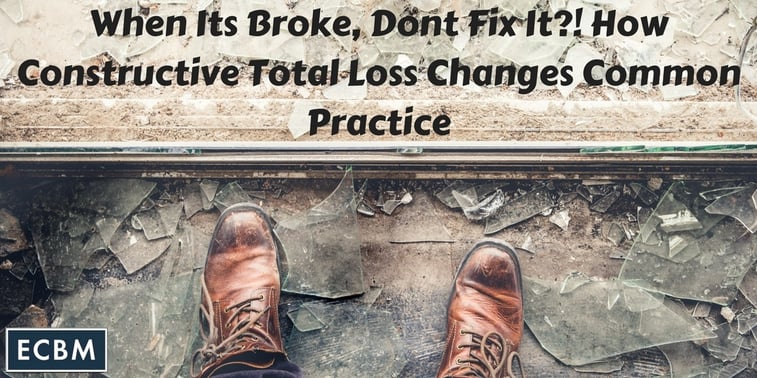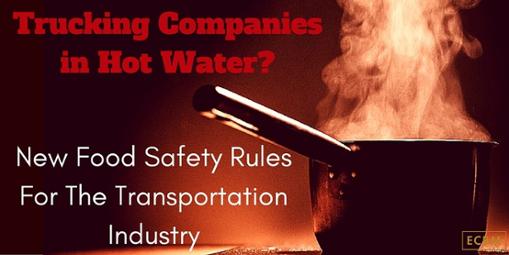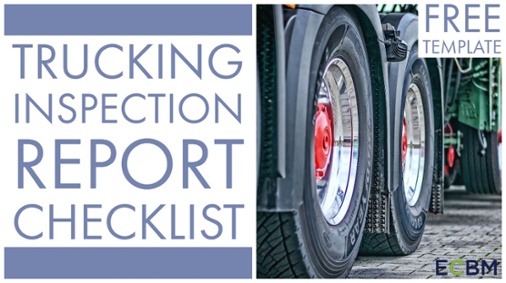
An older tractor trailer jackknifes on a federal interstate. A qualified mechanic estimates the cost of repairing the tractor trailer at $17,000. Unfortunately, an appraisal on the market value of the vehicle estimates it at $15,500. The insurance company declares the vehicle a total loss and only pays the $15,500 for the estimated value of the truck.
What Is Constructive Total Loss?
The industry calls it a constructive total loss when the cost of repairing a vehicle exceeds the vehicle’s total value. This compares to an actual total loss, where the possibility of repairing the vehicle does not exist. The term most often applies to vehicles such as cars, trucks, and boats, but the industry also uses it in relation to property such as heavy machinery.
How Is The Claims Process Different For Constructive Total Loss?
The process for a constructive total loss resembles that for most claims submitted to an insurance company. The insurance company will send an adjuster out for an off-site analysis of the vehicle and accident. Over the time period of a week or two, the adjuster will compile a report and obtain a repair estimate. Where a constructive total loss seems possible, the company will also request a market survey to determine the value of the vehicle at the time of the accident. The insurance company in this situation actually has two options for calculating the value of the vehicle. They can opt for the result of their market survey to determine the value of the vehicle or use the stated value of the vehicle in the policy. For this reason, it is important to carefully review the stated value of the various vehicles on the policy and keep them updated. No one wants to have inadequate insurance, but why pay for a premium on a $25,000 truck if when the truck is totaled, the insurance company will determine the value of the truck was only $15,000.
From the insurance company’s position, it is a simple cost-benefit analysis. It makes little sense for them to spend more money to repair a vehicle than the vehicle is worth. Why pay the extra $1,500 to have the tractor trailer in our original example repaired when they can save themselves those funds?
Kevin Forbes, Transportation Specialist at ECBM agrees,
“Constructive total loss can cause a number of issues for trucking and heavy equipment industries. Buying new equipment and vehicles is often more complicated and more of a hassle than repairing old ones. Replacing one old piece of machinery with another can lead to unexpected problems on one hand, while replacing it with a newer machine will almost certainly involve an unexpected capital outlay. Additionally, the process of buying new equipment can often take longer than a repair and is more time intensive for employees handling the matter. Perhaps most importantly, complications can arise if there is a lien owed on the vehicle that exceeds its determined market value.”
Additional Expenses Beyond The Repair Bill
Another factor confronting the insured business stems from the loss of use of the vehicle during the claims process. One less truck transporting cargo is one less truck from which the company can make a profit. Unfortunately, most trucking policies do not include a rental component. This means that if the trucking company is at fault for the accident leading to the constructive total loss, that company cannot recover for either a downtime claim resulting in loss of profit or for the cost of renting a replacement vehicle during the claims process. These options may be available if another party is at fault for the accident.
What Can Businesses Do To Reduce Costs?
The insured business does have several options available to it when confronting a constructive total loss. First, if the insured believes the estimate for repairing the vehicle is too high, they can attempt to find a qualified mechanic to do the repair for less than the value of the vehicle. The insured can also contest the market survey used to determine the value of the vehicle by pointing to factors or other sales not considered in the market survey. In these situations, the insured can sometimes convince the insurance company to back off totaling the vehicle. This normally involves the insured agreeing to not come back for additional amounts from the insurance company and tends to happen when the vehicle has a high lien against it.
Navigating these issues can be tricky and requires having a good claims specialists on your side and willing to walk you through the necessary steps.



